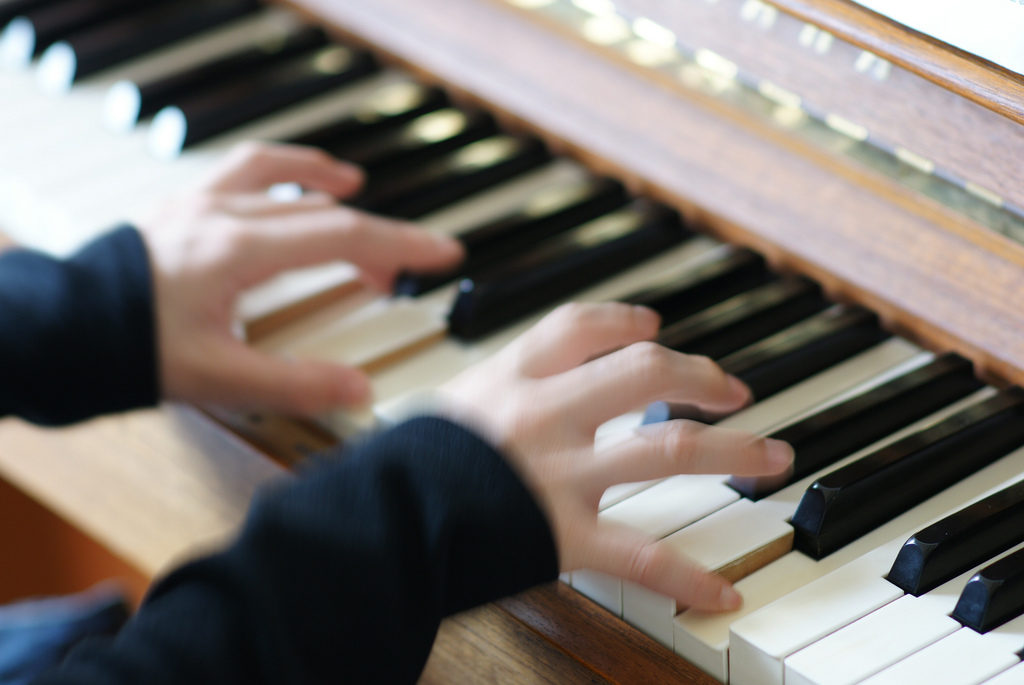In a new study published in The Journal of Child Psychology and Psychiatry, Professor Sam Porter and co-authors, present the results of a music therapy intervention on social skills, self-esteem, depressive symptoms, as well as family and social functioning. The researchers, based in the United Kingdom, found that the results of the intervention showed the benefits of integrating music therapy into clinical practice.

Ciara Reilly, the director of one of the study’s organizational partners, stated in a press release:
“Music therapy has often been used with children and young people with particular mental health needs, but this is the first time its effectiveness has been shown by a definitive randomised controlled trail in a clinical setting. The findings are dramatic and underscore the need for music therapy to be made available as a mainstream treatment option.”
Up to 20% of children and adolescents worldwide are affected by mental health disorders, which can have deleterious and long-lasting effects on both individuals and their families. Despite this high number, treatment is typically confined to medication and psychotherapy, which the authors argue, “have an insufficient evidence base.” However music therapy, which is becoming a more popular intervention, also has a limited evidence base, with studies that have either focused solely on adult populations or have been problematic due to their size or methodology.
For this study, the researchers recruited 251 children and adolescents of economically diverse backgrounds from community health agencies in Northern Ireland. The participants ranged from 8 to 16 years of age, and presented with a variety of mental health issues including “social, emotional, behavioural, and developmental disorders”.
Participants were assigned to one of two groups: a control group in which they received treatment as usual (counseling and/or medication); or an experimental group, in which they received both the usual care and an individually administered music therapy intervention. The technique used for the study encouraged improvisation and the creation of music and sound “through voice, instrument, or movement”, and it was coupled with customized therapeutic support.
Data was collected at three different time points: baseline (the beginning of the sessions), 1 week after final music therapy session (week 13), and at the end of the trial (i.e. 26 weeks after the final session). The researchers measured improvement of participants’ communication and interactional skills, self-esteem, depressive symptoms, social functioning, and family functioning.
Compared to the control group, participants in the experimental group experienced significant improvement in self-esteem and depression at week 13. However, this improvement did not last into the long term. Improvements in communication and interaction skills were only observed for participants over the age of 13, and although the improvement is clinically significant, it also did not have a lasting measurable effect.
Porter and his co-authors discuss their limitations at length, including their use of self-report measures, and their inability to separate music therapy factors in improvement from therapist-specific factors. Despite concerns about the sustainability of the effects, the researchers reported that their findings show the potential of music therapy, particularly in adolescents, and that it is possible that research into music therapy alternatives can find how to increase the duration of the effect.
The authors conclude, “… the results of this pragmatic trial strongly indicate the need for further research to ascertain what type and dosage of MT is most effective, and also for whom, and in what circumstances.”
****
Porter, S., McConnell, T., McLaughlin, K., Lynn, F., Cardwell, C., Braiden, H. J., … & Holmes, V. (2016). Music therapy for children and adolescents with behavioural and emotional problems: A randomised controlled trial. The Journal of Child Psychology and Psychiatry. (Full Text)















Saying that a child has “behavioral or emotional problems”, that sounds like Medical Child Abuse, what used to be known as Munchausen’s Syndrome By Proxy, and it should be subject to Mandatory Reporting.
Nomadic
But I know the importance of today, and I know that I can send messages and make statements in other ways.
Like most of us, Hillary Clinton is clearly influenced by the Civil Rights Movement, the Anti-War Movement, and the Women’s Movement. And we can see this.
But she started out as a White Suburban Republican, and she even worked on the Barry Goldwater Campaign. We can still see this too.
Report comment
I’ve read about amazing transformations with the use of music therapy, especially in the elderly. And I will say music played a huge part in my healing journey. But the medical community is apparently quite ignorant of the benefits of music therapy, if you can believe it, my therapist actually told me to stop listening to music. Thankfully, this was “medical advice” I ignored.
Report comment
Music is really beneficial in such cases I think. That’s why I play myself. Well, I am not a pro but I am getting different instruments and try to learn playing all of them. I already have a few guitars, a trumpet, violin, flute and I am going to buy a mandolin this week. Already found a nice model – https://musiety.com/rogue-rm-100a-overview-mandolin-for-beginners/ and I am looking forward to try it out)
Report comment